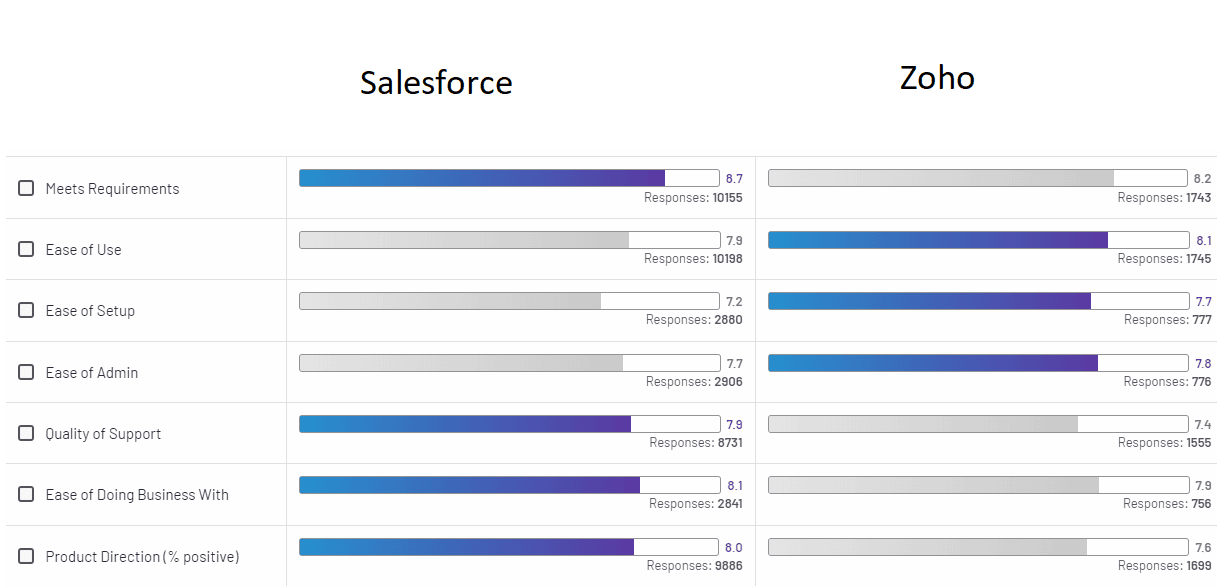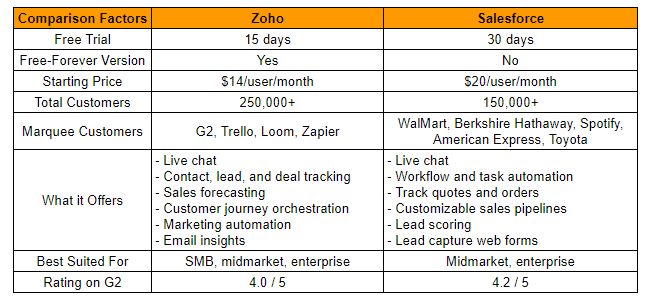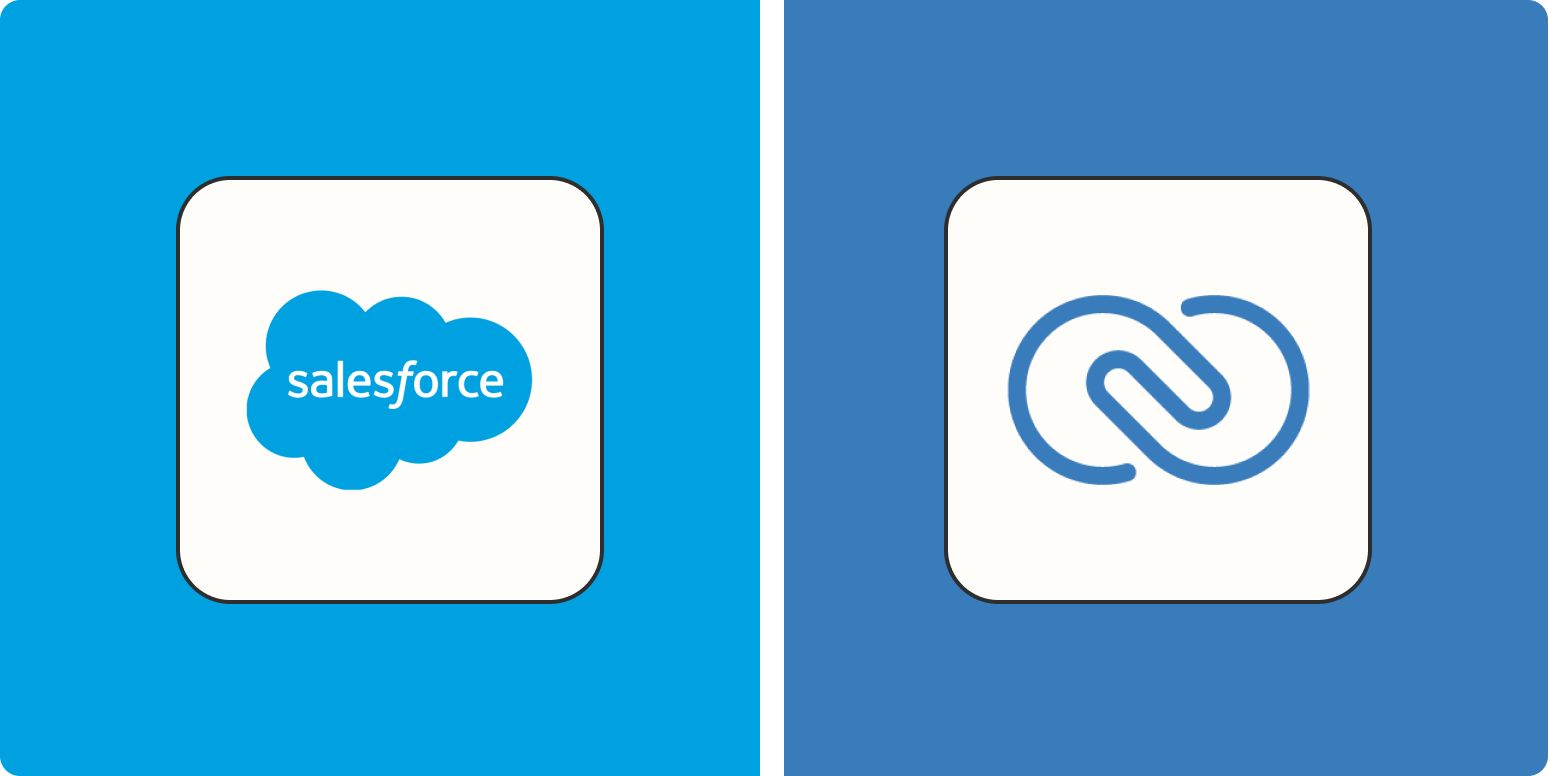Today's businesses, from startups to enterprises, require an efficient and user-friendly CRM (Customer Relationship Management) system to manage their sales, customer interactions, and data-driven decisions. Zoho CRM and Salesforce have both considerable popularity, yet deciding between these solutions can often feel overwhelming. In this article, we’ll guide you step-by-step on how each of these CRM platforms performs in 2025, highlight their key features, pricing structures, ease-of-use, customer support, integrations, and help you determine what’s right for your business.
Let's dive in and see how Zoho CRM and Salesforce stack up in 2025.
Table of Contents
- Zoho CRM vs Salesforce: An Overview
- Key Features of Zoho CRM vs Salesforce in 2025
- Pricing Comparison: Zoho CRM vs Salesforce
- Ease of Use: Zoho CRM vs Salesforce
- Integrations and Apps: Zoho CRM vs Salesforce
- Customer Support & Training Resources
- Pros & Cons of Choosing Zoho CRM vs Salesforce
- User Reviews of Zoho CRM vs Salesforce in 2025
- Final Verdict: Zoho CRM vs Salesforce
Zoho CRM vs Salesforce: An Overview
Zoho CRM and Salesforce have dominated the CRM market for years because they successfully cater to the diverse needs of businesses. Both platforms have evolved significantly over time, and as we enter 2025, they continue to set industry standards for innovation, automation, AI-driven insights, and effective customer relationship management.
Zoho CRM is particularly popular among small and medium-sized businesses (SMBs) due to its affordability and user-friendliness. Zoho CRM gives users a straightforward and intuitive experience, catering efficiently to companies that don't require complicated customization processes.
On the other hand, Salesforce, as a longtime industry leader, is trusted by larger enterprises due to its scalability, customization capabilities, extensive ecosystem, and comprehensive enterprise-level functionality. Salesforce provides advanced analytics, vast integrations via AppExchange, and powerful automation tools ideal for rapidly growing businesses or corporations.
Zoho and Salesforce are widely regarded as top contenders in our best CRM rankings.

Key Features of Zoho CRM vs Salesforce in 2025
Zoho CRM Essential Features:
Zoho CRM has evolved rapidly. By 2025, it comes packed with several essential features including:
- Simple intuitive dashboard tooling
- Robust workflow automation
- Advanced real-time sales tracking
- AI-driven personalization with Zoho Zia
- Multi-channel communication integration (messaging, phone, email)
- Data analytics, reports & mobile CRM capabilities
- Seamless integrations across Zoho's own products (Zoho Desk, Zoho Books, Zoho Campaigns)
Companies love using Zoho's Zia assistant, powered by Artificial Intelligence, capable of predicting opportunities, identifying customer behavior patterns, and suggesting relevant tasks.
Here's a valuable tutorial from Zoho CRM's official YouTube channel to complement your understanding:
Zoho CRM Tutorials (Official Zoho Channel)
Salesforce Essential Features:
Salesforce remains an industry titan in 2025, offering the following advanced functionalities:
- Highly customizable sales pipeline management
- In-depth analytics and CRM reporting via Salesforce Einstein AI
- Platform-as-a-service (Force.com) for deep customization
- Strong data security and compliance management
- Vast library of integrations via Salesforce AppExchange
- Specialized industry-focused solutions (healthcare, financial services, manufacturing)
- Mobile-first CRM solutions for up-to-date sales management
The Salesforce Einstein AI continues to innovate rapidly, blending seamlessly with Salesforce tools, offering smart recommendations, predictions, and valuable real-time sales insights.
Check out Salesforce Einstein on Salesforce's official YouTube Channel here:
Salesforce Einstein AI in Action
Pricing Comparison: Zoho CRM vs Salesforce
Pricing matters when evaluating CRM tools. Let's break it down clearly.
Zoho CRM Pricing in 2025:
Zoho CRM has remained attractive financially for SMBs, offering user-friendly pricing tiers:
- Free tier available for up to 3 users
- Standard: $18/month per user
- Professional: $30/month per user
- Enterprise: $45/month per user
- Ultimate: $55/month per user
Zoho is exceptionally competitive and typically suits budget-conscious startups and SMBs.
Salesforce Pricing in 2025:
On the other side, Salesforce offers comprehensive packages that can scale easily, albeit at higher rates:
- Essentials: $30/month per user
- Professional: $80/month per user
- Enterprise: $170/month per user
- Unlimited: $330/month per user
The extensive pricing gap implies Salesforce suits companies with higher budgets and sophisticated CRM needs more effectively.

Ease of Use: Zoho CRM vs Salesforce
When it comes to ease of use, your team’s learning curve and adaptability matter significantly.
Zoho CRM’s Usability:
Zoho CRM has continually emphasized ease of use. The intuitive interface, with minimal onboarding requirements, makes Zoho CRM ideal for teams that want quick adoption and implementation without lengthy training sessions.
Salesforce’s Usability:
Salesforce's complexity and extensive customization features present a higher learning curve compared to Zoho's. Proper onboarding, comprehensive training programs, and professional consultancy can help your team leverage Salesforce’s powerful capabilities fully.
Integrations and Apps: Zoho CRM vs Salesforce
The ecosystem of third-party integrations enhances your CRM effectiveness.
Integrations available for Zoho CRM:
Zoho integrates effortlessly across popular business apps like Google Workspace, MailChimp, Slack, Shopify, and even QuickBooks. Zoho’s library continues to expand, catering mostly to e-commerce and digital-centric businesses.
Salesforce AppExchange Ecosystem:
Salesforce has an unparalleled marketplace known as AppExchange, offering thousands of integrations. Some popular integrations include SAP, Oracle ERP, HubSpot, Marketo, and LinkedIn Sales Navigator. Enterprises benefit immensely from Salesforce due to these robust integrations.
Visit Salesforce AppExchange Here
Customer Support & Training Resources
Support quality significantly impacts user experience and overall CRM satisfaction.
Zoho CRM Support and Resources:
Zoho offers dependable support through email, phone, knowledgebase articles, detailed documentation, and specialized Zoho University courses. Most Zoho users praise quick support response and ease of access.
Salesforce Support and Training Options:
Salesforce provides extensive customer support via phone, chat, email, and community forums. Trailhead, Salesforce’s dedicated training platform, offers high-quality practical learning paths for CRM mastery.
Pros & Cons of Choosing Zoho CRM vs Salesforce
Zoho CRM Advantages & Disadvantages
Pros:
- Affordable pricing
- Easy-to-use interface
- Effective AI features
- Simplicity and quick user onboarding
Cons:
- Less customizable than Salesforce
- Limited enterprise-grade features
Salesforce Advantages & Disadvantages
Pros:
- Robust customization options
- Rich integrations and extended ecosystem
- Comprehensive analytics tools
Cons:
- Higher pricing points
- Steeper learning curve; training required

User Reviews of Zoho CRM vs Salesforce in 2025
Real user feedback remains vital in software evaluation. G2 and Capterra user ratings consistently indicate high satisfaction with Zoho’s affordability and usability, whereas Salesforce users generally praise power, customization, and flexibility.
Final Verdict: Zoho CRM vs Salesforce
In 2025, the choice between Zoho CRM and Salesforce entirely depends on your company's specific needs:
- Choose Zoho CRM if you're searching for a cost-effective, easy-to-set-up CRM solution, particularly if you are a smaller or mid-sized business.
- Choose Salesforce if you represent a larger organization or enterprise-level business looking for extensive customization, advanced AI, a vast integration library, and strong analytics.
Your informed choice will help your business thrive in the increasingly tech-driven landscape of 2025.
But you can also compare Salesforce with HubSpot or explore HubSpot vs Pipedrive for lighter CRM setups


